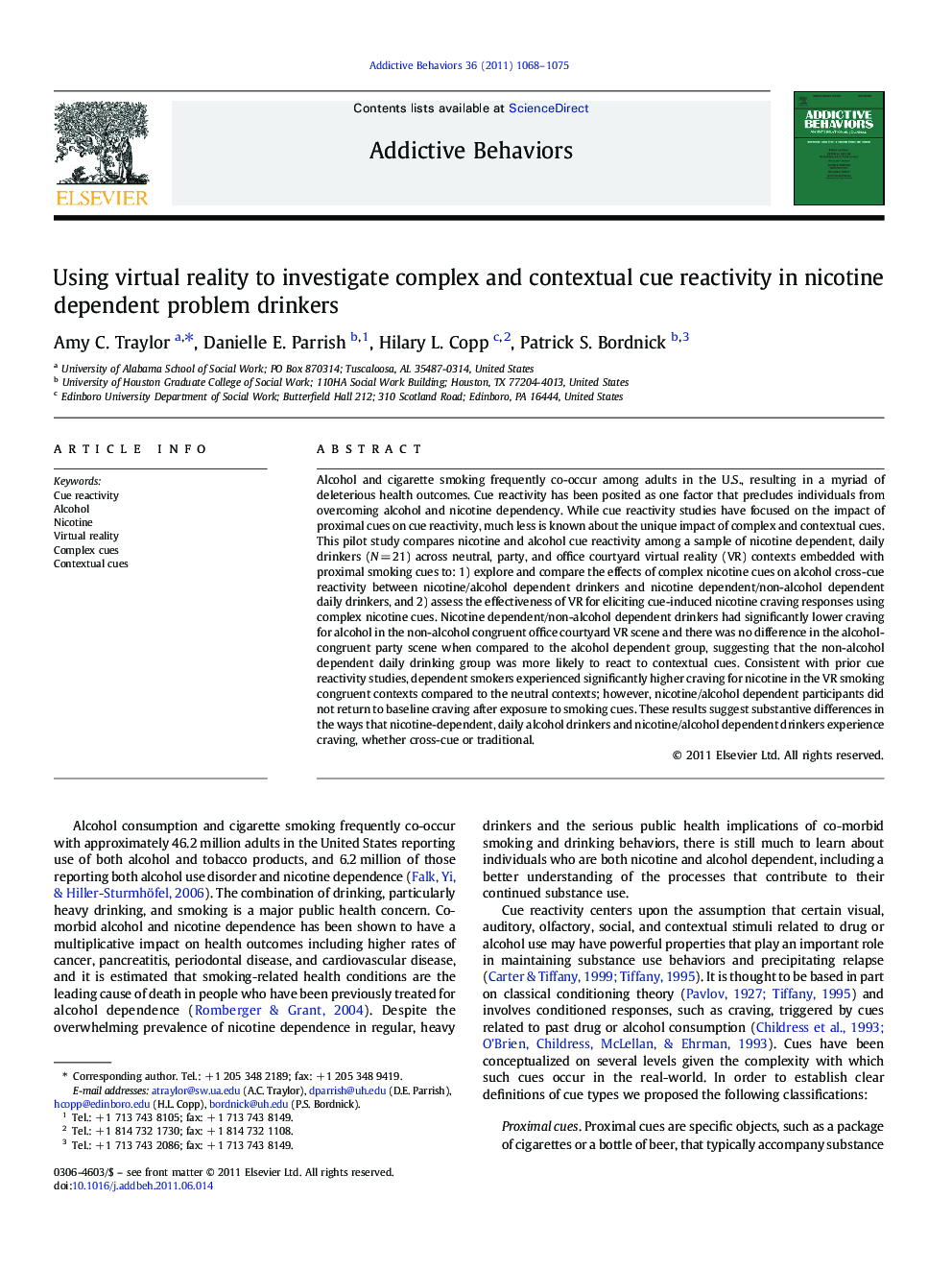| Article ID | Journal | Published Year | Pages | File Type |
|---|---|---|---|---|
| 899659 | Addictive Behaviors | 2011 | 8 Pages |
Alcohol and cigarette smoking frequently co-occur among adults in the U.S., resulting in a myriad of deleterious health outcomes. Cue reactivity has been posited as one factor that precludes individuals from overcoming alcohol and nicotine dependency. While cue reactivity studies have focused on the impact of proximal cues on cue reactivity, much less is known about the unique impact of complex and contextual cues. This pilot study compares nicotine and alcohol cue reactivity among a sample of nicotine dependent, daily drinkers (N = 21) across neutral, party, and office courtyard virtual reality (VR) contexts embedded with proximal smoking cues to: 1) explore and compare the effects of complex nicotine cues on alcohol cross-cue reactivity between nicotine/alcohol dependent drinkers and nicotine dependent/non-alcohol dependent daily drinkers, and 2) assess the effectiveness of VR for eliciting cue-induced nicotine craving responses using complex nicotine cues. Nicotine dependent/non-alcohol dependent drinkers had significantly lower craving for alcohol in the non-alcohol congruent office courtyard VR scene and there was no difference in the alcohol-congruent party scene when compared to the alcohol dependent group, suggesting that the non-alcohol dependent daily drinking group was more likely to react to contextual cues. Consistent with prior cue reactivity studies, dependent smokers experienced significantly higher craving for nicotine in the VR smoking congruent contexts compared to the neutral contexts; however, nicotine/alcohol dependent participants did not return to baseline craving after exposure to smoking cues. These results suggest substantive differences in the ways that nicotine-dependent, daily alcohol drinkers and nicotine/alcohol dependent drinkers experience craving, whether cross-cue or traditional.
► Nondependent drinkers more likely to react to context cues than dependent drinkers. ► Dependent smokers responded more to smoking context cues than neutral cues. ► Nicotine/alcohol dependent participants did not return to baseline craving levels.
